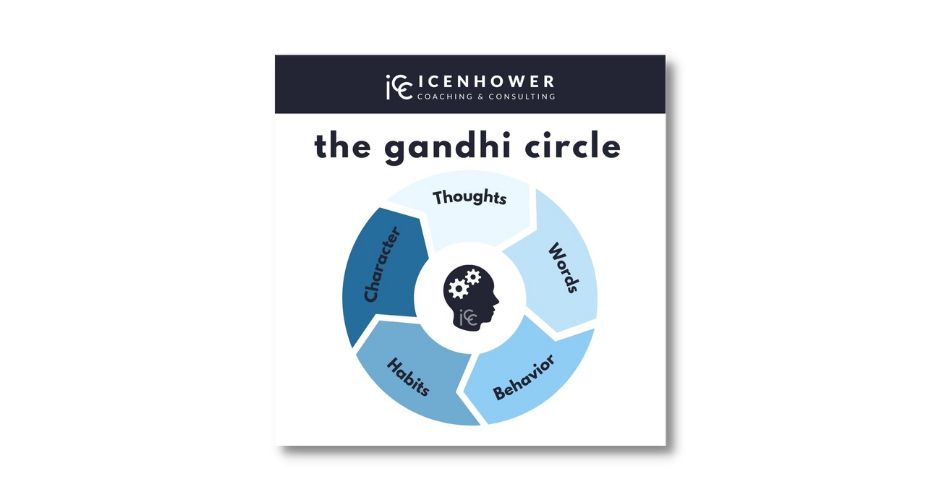

Now more than ever, these real estate training ideas provide the motivation that agents need to press on. During a shift in the market, it is especially essential to buckle down and stay positive. Listen as I explain some training ideas that will help you and your agents stay motivated, no matter the market conditions.
Maintaining a positive mindset is of utmost importance. It’s probably the most volatile thing that disrupts new agents, experienced agents, and top producers alike.
I’ve literally been coaching and training agents for over 30 years now. I’ve watched thousands of agents struggle with this. It baffles me when I see agents, who I would not otherwise deem “successful,” succeed solely based on their positive mindset.
Or, on the other side of the coin, I see highly talented, intelligent, gifted, socially connected agents fail because of mindset issues. Even if an agent normally displays extremely positive behavior and maintains their mindset on a regular basis, a momentary lapse can lead to a spiral. I cannot tell you how common this issue is.
At ICC, all of our coaches and trainers use these real estate training ideas for motivation, with our clients, on a regular basis.

Of course, Gandhi is well regarded as a wise man. Perhaps one of the wisest in history. The diagram above, the Gandhi Circle, takes the science behind what we are talking about today and puts it in a very palatable and understandable diagram. (You can download a high-res PDF today for free, below, when you subscribe to our newsletter.)
You can see the flow of how thoughts control your actions, and ultimately shape your character. From thoughts to words, from words to behavior, from behavior to habits, from habits to character–we are able to see how each is linked.
It creates a spiral that can either shape you into a more negative person, or a more positive person.
The concept of motivation is essential to all of these real estate training ideas What you are thinking will control the words that come out of your mouth. You’ll notice that it doesn’t go from thoughts, to behavior, to words. Nope. It goes directly from thoughts, to words, and then behavior.
When you say something, it’s like you are testifying to the universe, “Here are my thoughts.” Other people then hear those words. Once you say your thoughts, you have a sense of accountability to now “walk the walk” and back up your words with your behavior. This is where a lot of issues arise.
Sometimes, you don’t filter your thoughts before they come out as words. You may feel something, but because you’re not managing that emotion well, it instantly comes out. Often when something bad happens at home or in your personal life, it will enter your professional life in this same manner.
It’s a slippery slope once you start “vomiting” out your emotions as words. It’s easy to dig yourself a hole that isn’t easy to get out of.
All of a sudden, your words start to influence your behavior.
Now it’s out in the universe. Out in the public arena. Once you speak it, it is “real,” and you can’t take it back.
Brian Icenhower
Unfortunately, now your words can come out easier than ever, thanks to social media. Facebook posts are easy to compose but virtually impossible to fully “take back.”
Suddenly, with the advent of social media, people are able to broadcast their negative feelings to a large audience. That large audience is allowed to view, comment, share, or (heaven forbid) screenshot your negative sentiments.
As we continue around the Gandhi Circle, you can see what’s next. Now your behavior has to back up your words. People with strong opinions and no filter, who choose to share how they feel, are held accountable for what they say and need to back it up with their behavior. This is how your words shape your actions.
Once you do something to back up your negative words, it becomes easier to do it again. This repetition soon creates a habit.
Ultimately, the habits you form can change your character over time. It can change who you are – and your core values.

Of course, once you reach the end of this chain reaction and your character begins to change, that shift in your character will further influence your thoughts and start the process over again.
When it comes to social media, it gets easier and easier to write negative posts. Here comes another negative social media rant to justify the previous one.
You become emboldened to continue down this negative path. Now, all of this negativity is building up, and you are continuing to alienate more and more followers.
Not only will the negativity continue, but it will get worse. Your words will get stronger, your actions will become more negative, and with each turn around the Gandhi Circle, you will find yourself spiraling further and further until you hardly recognize yourself anymore.
As a real estate agent, you need to realize that your social media platforms are public. If you are using them to vent negativity, you must realize that you are essentially airing your unsolicited opinions to the general public.
You are sharing these posts with affiliates, lenders, title companies, home warranty companies, inspectors, fellow agents, team members, etc.
Be careful about your thoughts turning into words. When you start saying bad things about other people, places, or things, that is going to start changing your behavior, your habits, and ultimately, your character.
Negative thoughts are normal. You’re not bad for thinking negative things. But if you allow them to turn into words … that’s where the spiral begins. You must have a filter to prevent negative words from coming out of your mouth in the first place.
Brian Icenhower
Don’t use your words to…
Many Realtors play the blame game. When you are working with clients, it’s easy to blame things that go wrong during a transaction on the other agent.
Avoid this at all costs. It makes you look like a complainer who can’t handle their own job. Your client should feel your confidence whenever you explain to them that it’s normal for issues to come up all the time.
Be a professional. Calm your client instead of lighting a fire by blaming someone else, complaining about the other agent, and justifying your behavior. (Remember the rules: no blaming, complaining, or justifying!)
You’re going to mess up, because you are human. If the negative words have already left your mouth, you can admit that you were wrong. This makes you the bigger human. It takes work. It takes training. That’s why you must use these real estate training ideas to perpetuate a positive mindset in your business.
Collect yourself. Don’t let yourself continue to spiral. Hold yourself accountable for the words you say.
Brian Icenhower
Mindset control and the Gandhi Circle is a topic that you should train your people on regularly. If not monthly, then quarterly. Preventing that negative spiral from happening will make a huge difference in not only your agents’ professional development, but also their personal growth and well-being. Everybody needs to work on this. And not just once – regularly.
This week, we are giving subscribers a FREE copy of the Gandhi Circle. It shows the cycle of how your thoughts become your actions. Soon, those thoughts trickle all the way down to influencing your core character.
To learn how to help control your thoughts, enroll in our Success Mindset training course today.
